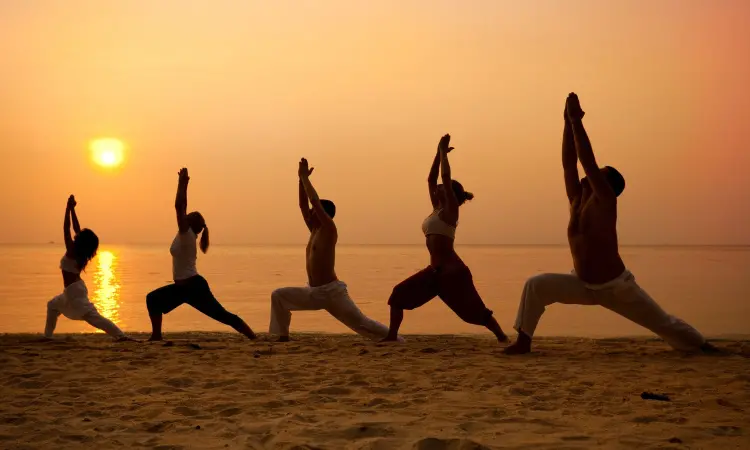- Home
- Medical news & Guidelines
- Anesthesiology
- Cardiology and CTVS
- Critical Care
- Dentistry
- Dermatology
- Diabetes and Endocrinology
- ENT
- Gastroenterology
- Medicine
- Nephrology
- Neurology
- Obstretics-Gynaecology
- Oncology
- Ophthalmology
- Orthopaedics
- Pediatrics-Neonatology
- Psychiatry
- Pulmonology
- Radiology
- Surgery
- Urology
- Laboratory Medicine
- Diet
- Nursing
- Paramedical
- Physiotherapy
- Health news
- Fact Check
- Bone Health Fact Check
- Brain Health Fact Check
- Cancer Related Fact Check
- Child Care Fact Check
- Dental and oral health fact check
- Diabetes and metabolic health fact check
- Diet and Nutrition Fact Check
- Eye and ENT Care Fact Check
- Fitness fact check
- Gut health fact check
- Heart health fact check
- Kidney health fact check
- Medical education fact check
- Men's health fact check
- Respiratory fact check
- Skin and hair care fact check
- Vaccine and Immunization fact check
- Women's health fact check
- AYUSH
- State News
- Andaman and Nicobar Islands
- Andhra Pradesh
- Arunachal Pradesh
- Assam
- Bihar
- Chandigarh
- Chattisgarh
- Dadra and Nagar Haveli
- Daman and Diu
- Delhi
- Goa
- Gujarat
- Haryana
- Himachal Pradesh
- Jammu & Kashmir
- Jharkhand
- Karnataka
- Kerala
- Ladakh
- Lakshadweep
- Madhya Pradesh
- Maharashtra
- Manipur
- Meghalaya
- Mizoram
- Nagaland
- Odisha
- Puducherry
- Punjab
- Rajasthan
- Sikkim
- Tamil Nadu
- Telangana
- Tripura
- Uttar Pradesh
- Uttrakhand
- West Bengal
- Medical Education
- Industry
Yoga better than walking for blood sugar control in diabetes patients

India: A recent study published in the Journal of the ASEAN Federation of Endocrine Societies has revealed the positive effects of walking or yoga with oral hypoglycemic agents (OHA) on glycemic control.
"For the management of type 2 diabetes mellitus (T2DM), yoga has a relatively more significant impact on blood sugar control than walking," the study stated.
Yoga and walking are suggested to have an impact on insulin resistance and glycemic control for patients with type 2 diabetes. A daily habit of walking or yogic practice, along with an OHA could be beneficial for better control of T2DM. Biswajit Dhali, Department of Physical Education, Jadavpur University, Kolkata, India, and colleagues aimed to investigate the efficiency of walking or yoga on glycemic control in T2DM by conducting a systematic review and meta-analysis of randomized controlled trials (RCTs).
For this purpose, the researchers completed the systematic review and meta-analysis according to the PRISMA guidelines. The risk of bias in the included studies was assessed using the revised Cochrane risk-of-bias tool for randomized trials. RevMan software was used to implement the mata-analysis. Forest plots were used to illustrate the meta-analysis results and study findings.
The systematic review included sixteen studies, where 1820 participants were randomized to one of the following interventions: walking, yoga, and without any regular exercise (control group). Participants were aged between 17-75 years.
The researchers reported the following findings:
- Compared to the control group, the yoga group had a significant reduction in fasting blood glucose (FBG) by 31.98 mg/dL, glycosylated haemoglobin (HbAlc) by 0.73%, postprandial blood glucose (PPBG) by 25.59 mg/dL, fasting insulin by 7.19 μIU/mL, and homeostatic model assessment for insulin resistance (HOMA-IR) by 3.87.
- Compared to the control group, the walking group had a significant reduction in FBG by 12.37 mg/dL and HbA1c by 0.35%.
- Compared to the walking group, the yoga group had a significant reduction in FBG by 12.07 mg/dL, HbA1c by 0.20%, fasting insulin by 10.06 μIU/mL and HOMA-IR by 5.97.
The research provides evidence of the positive effects of either walking or yoga on insulin resistance and glycemic control compared to the control group (no regular exercise) in T2DM patients taking oral hypoglycemic agents.
The change in fasting blood glucose and HbA1c in the walking group compared to the control group is statically significant but may not be clinically significant.
"Comparatively, yoga had more significant effects on insulin resistance and glycemic control in comparison to walking for T2DM management," the researchers concluded.
Reference:
Dhali, Biswajit, et al. "Effect of Yoga and Walking On Glycemic Control for the Management of Type 2 Diabetes: a Systematic Review and Meta-analysis." Journal of the ASEAN Federation of Endocrine Societies, vol. 38, no. 2, 2023, pp. 113-122.
Dr Kamal Kant Kohli-MBBS, DTCD- a chest specialist with more than 30 years of practice and a flair for writing clinical articles, Dr Kamal Kant Kohli joined Medical Dialogues as a Chief Editor of Medical News. Besides writing articles, as an editor, he proofreads and verifies all the medical content published on Medical Dialogues including those coming from journals, studies,medical conferences,guidelines etc. Email: drkohli@medicaldialogues.in. Contact no. 011-43720751


